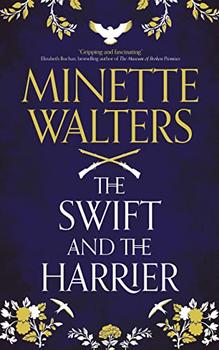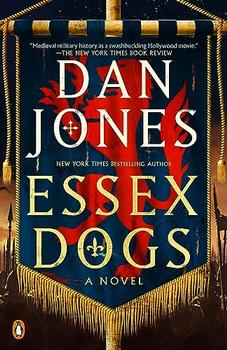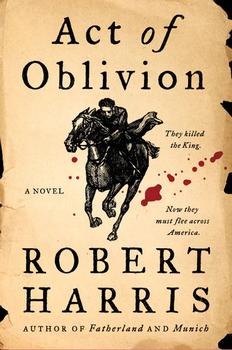Summary | Excerpt | Reviews | Beyond the book | Read-Alikes | Genres & Themes | Author Bio

Caught in the bloody English Civil War (1642-1651), Jayne Swift is a rare bird: a female physician who has declared neutrality in a time when sectarianism is everywhere. Even as she cures people, their families and their friends — or in one particularly memorable case, their royal commander — they do not readily believe that a woman could be the finest doctor in Dorchester. It is even more difficult for them to believe that she has not chosen a side in the Civil War; rather than only working for Royalists or Parliamentarians, Jayne endeavors to heal any wound or illness, no matter the political allegiance of the patient.
"How trivial Jayne's sudden despair in the hospital seemed by comparison, for it was not just Susan's strength that put her to shame but the strength of every woman in Lyme. ...If anything could revive her spirits, it was surely the sight of women proving themselves the equals of men."
Minette Walters, best known for her psychological crime thrillers, delves deep into the human side of the English Civil War, with deft handling of the major players and battles, in The Swift and the Harrier. Yet rather than succumbing to the Great Man theory that plagues our viewing of history, focusing primarily on the names in the historical record, Walters and her heroine criticize this trend. Jayne notes that despite the major impact of women in a certain siege battle, "when the history of Lyme's glorious defeat of Prince Maurice is written, the only names recorded in it will be male." Walters presents her readers with many examples of brave women who, in their own ways, fight in the war. These include Jayne, of course, but also her fellow midwives, nurses and healers; one of her patrons, who is an accomplished artist; and her cousin, Ruth, whose quiet strength derives from her earnest religious belief — the same belief being exploited by those in charge to fuel a bloody war.
The male character whose bravery Walters focuses on the most is William Harrier, who of course forms the latter half of the titular duo with Jayne. With the seemingly boundless knowledge gained from his experience as a soldier and spy, William's perspective is as unique as Jayne's. From their first meeting, it is clear that he is deeply impressed by her. Though their interactions seem too few and infrequent to generate the kind of relationship that develops between them by the end of the novel, the intensity of their similarities (their shared desire for independence, change and equality) certainly forms a strong basis for romantic attachment. However, I would not categorize The Swift and the Harrier as a romance. Walters really prioritizes the individual journeys of her characters — not just those of Jayne and William, but of their families and friends — and I found this to be a refreshing departure from the popular historical romance currently on the market.
I truly enjoyed The Swift and the Harrier because it incorporates substantial scholarly history in a fictional format. It was great fun to see the famous names peppered throughout the novel and to try to guess how Jayne would interact with these figures. Yet the specificity of Walters' writing style, along with the fact that this novel clocks in at over 500 pages, can certainly seem intimidating, even if one has some knowledge of the time period. That's not to say that this book is not a pleasurable read; the characters leap off the page and the situational — if sometimes necessarily dark — humor often made me laugh in spite of myself. It is a great way to learn more about a time that has not been given as much of a spotlight in popular history as, say, the earlier Tudor or the later Regency period.
![]() This review was originally published in The BookBrowse Review in September 2022, and has been updated for the
August 2023 edition.
Click here to go to this issue.
This review was originally published in The BookBrowse Review in September 2022, and has been updated for the
August 2023 edition.
Click here to go to this issue.

If you liked The Swift and the Harrier, try these:

by Dan Jones
Published 2023
The New York Times bestselling historian makes his historical fiction debut with an explosive novel set during the Hundred Years' War.

by Robert Harris
Published 2023
From the bestselling author of Fatherland, The Ghostwriter, Munich, and Conclave comes this spellbinding historical novel that brilliantly imagines one of the greatest manhunts in history: the search for two Englishmen involved in the killing of King Charles I and the implacable foe on their trail - an epic journey into the wilds of seventeenth-...
If we did all the things we are capable of, we would literally astound ourselves
Click Here to find out who said this, as well as discovering other famous literary quotes!
Your guide toexceptional books
BookBrowse seeks out and recommends the best in contemporary fiction and nonfiction—books that not only engage and entertain but also deepen our understanding of ourselves and the world around us.